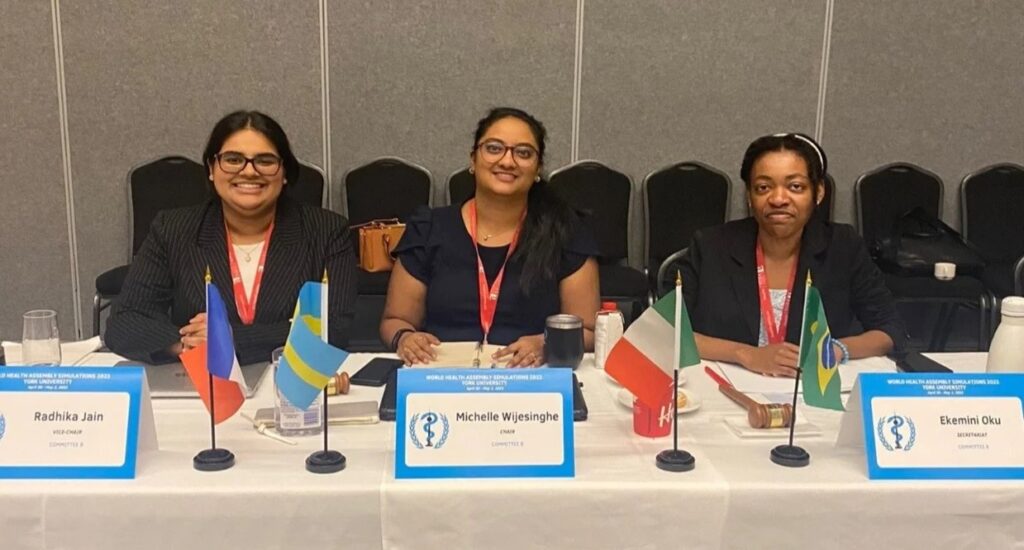
York University’s School of Global Health is preparing the next generation of health leaders by immersing students in real-world challenges and fostering practical skills.
In an era where drug-resistant infections pose an escalating threat to global public health, emerging health leaders will need a comprehensive understanding of how to address the complex challenge of antimicrobial resistance (AMR).
The challenge within is to find solutions for AMR, which occurs when bacteria, viruses, fungi and parasites evolve to resist the medications designed to combat them, rendering standard treatments ineffective and infections more difficult to treat.

This proactive approach to educating students will be highlighted during the World Health Assembly Simulation (WHA SIM). This simulation-based experiential learning initiative is inspired by the World Health Organization’s (WHO) decision-making body, the World Health Assembly (WHA), and aims to strengthen collaborative governance skills in tackling global issues, including the United Nations’ Sustainable Development Goals (SDGs).
Through engaging in debates, crafting research briefs and drafting formal resolutions, students will develop and test innovative solutions related to the simulation theme: “Combating Antimicrobial Resistance: All for Health, Health for All.”
"The World Health Assembly Simulation provides students with a unique opportunity to step into the shoes of global health diplomats and tackle one of the most pressing health crises of our time," says Professor Mary Wiktorowicz of York’s Faculty of Health. "Participants will develop practical skills while contributing to meaningful discussions on how to preserve these life-saving medicines for future generations."
The initiative, which runs over two days on April 30 and May 1, replicates the procedures and dynamics of the WHO's annual decision-making forum where delegates from member states convene to establish global health policies. Students represent various countries and navigate complex political landscapes while striving to achieve consensus on international strategies to combat antimicrobial resistance.
A.M. Viens, the inaugural director of the School of Global Health and an associate professor of global health at York University, explains that “beyond the educational value, the simulation offers participants tangible benefits including networking opportunities with peers and professionals, enhancement of critical communication, opportunities to learn collaborative and negotiation skills and insights into the mechanisms of global health governance.”
The simulation's emphasis on collaborative problem-solving and policy development provides students with valuable real-world experience applicable across diverse career paths in health sciences, international relations and political science.
"What makes this simulation particularly valuable is its focus on a health challenge that requires coordinated global action," says Emmanuel Musa, a community fellow at York's Dahdaleh Institute for Global Health Research and coordinator of this year’s event. "The theme 'All for Health, Health for All' underscores the reality that effective solutions to antimicrobial resistance must be inclusive, equitable and universally implemented."
Students interested in attending the two-day program are welcome to register for free through this link. Registration includes complimentary lunch and refreshments, along with a certificate of participation and giveaways for all delegates.
For more information on the 2025 WHA SIM, visit the event website.
With files from Emmanuel Musa
